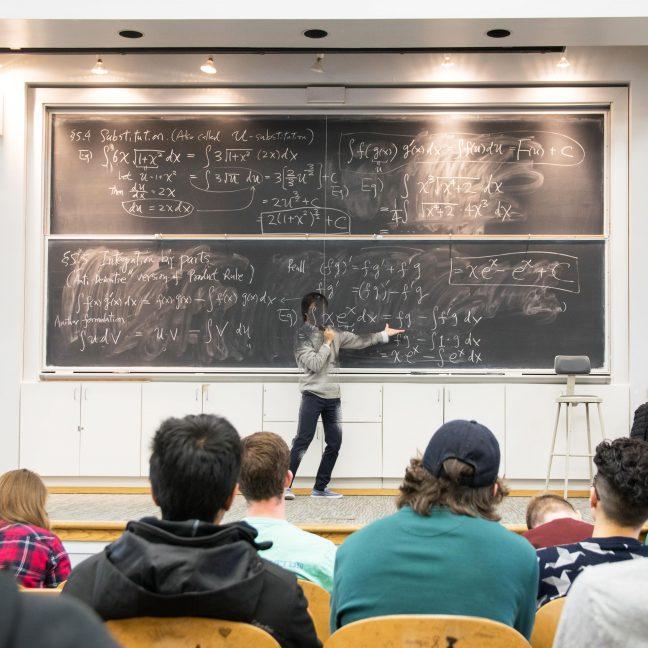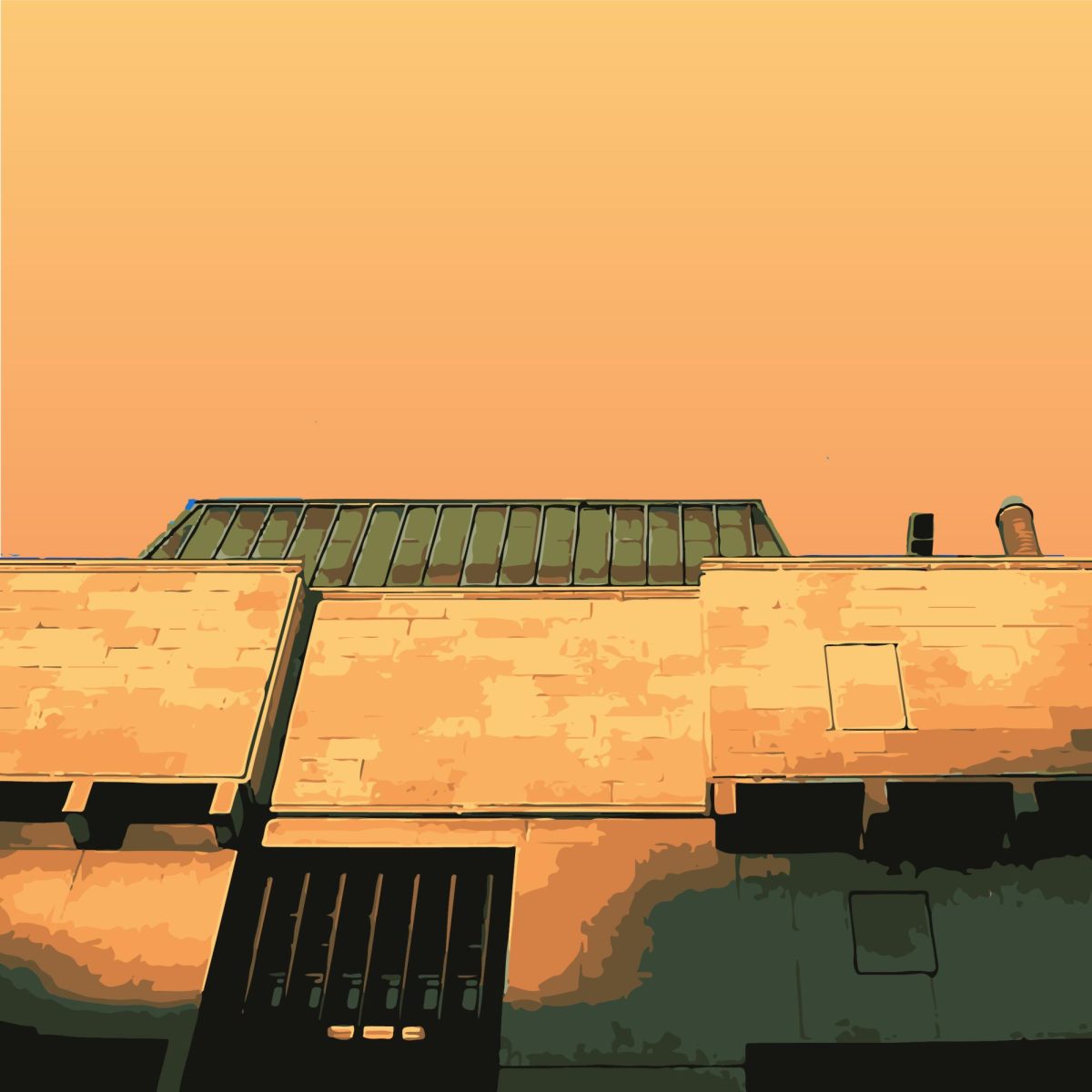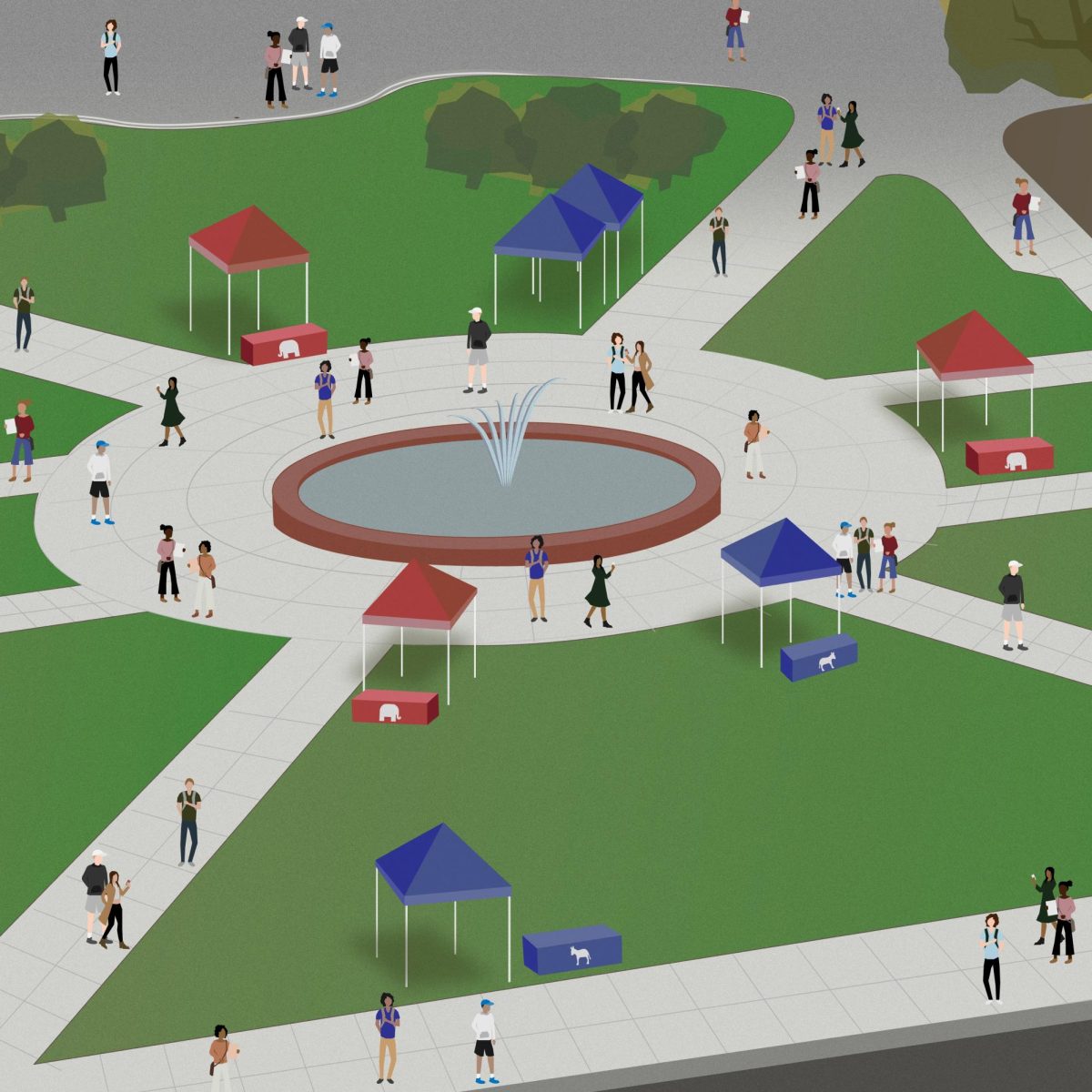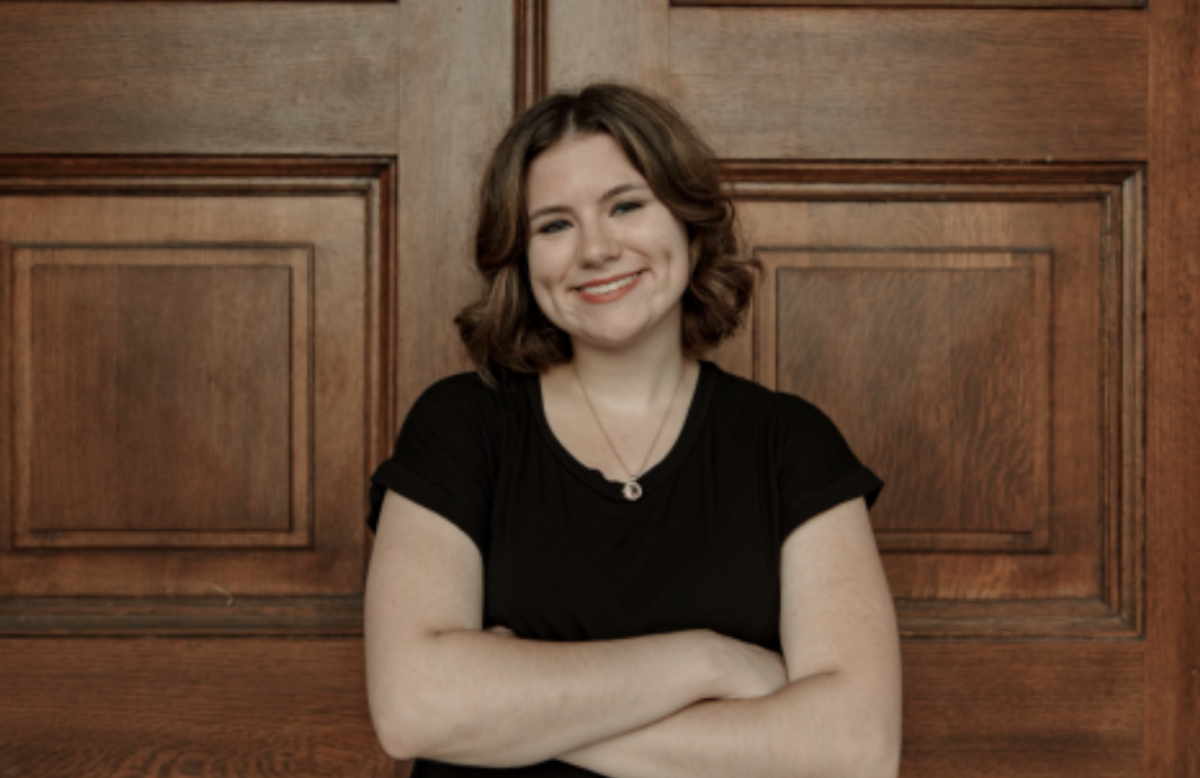Each year, thousands of prospective college students choose from numerous higher education institutions to pursue their academic goals.
In 2015, however, students weren’t the only ones facing this difficult decision.
Professors who had dedicated their professional careers to the University of Wisconsin were confronted with a similar dilemma on a scale rarely seen before.
In 2014, 100 outside offers were extended to UW professors from other higher education institutions, up 43 percent from the year before.
A year later, new reports citing a similar increase emerge — once again, an increase of 44 percent from the previous year’s already irregular figures. UW saw 144 efforts by peer institutions to recruit faculty in 2015.
These repeated outside offers left many professors unsure of their future at UW, as other institutions promised higher salaries and stable sources of funding.
The number of outside offers in 2015 was the highest the university had encountered in the preceding decade, with the number of offers skyrocketing following a decade-low in 2013. Over this two-year period, the number of annual outside offers increased 106 percent.
The salaries at the time of UW professors who received outside offers were an average of 30 percent less than the offers made by other institutions.
“The most common issue reported when our faculty leave, or report why they’re even considering an outside offer, is salary because our salaries are well below many of our peer institutions,” Vice Chancellor for Academic Affairs Sarah Mangelsdorf said. “So, that’s an issue.”
Still, the university retained considerably high numbers of professors who received outside offers and reported salary as an issue.
Retention rates remain steady
Since the salary offers from competing institutions exceeded UW’s, many speculated salary concerns would push professors to other institutions.
Caroline Levine, former chair of the UW English department, said salary was not a personal consideration in her decision to leave in 2016, but that she could understand why it would be for many who work in academia.
“For people who are struggling with student debts themselves or trying to send their kids to college, higher salaries are definitely attractive,” Levine said.
Yet, the university retained high numbers of professors who had received competitive offers from other universities — even those who had listed salary as a reason to consider leaving UW.
In 2014, UW retained 82 percent of professors who cited salary as a concern. That number rose in 2015, reaching a retention rate of 95 percent for those who reported salary as an issue in 2015.
UW’s retention rate was also high for those professors who did not list salary as one of their concerns. In 2014, 77 percent of professors who had received outside offers elected to stay at UW. This number was maintained in 2015 when UW again saw a 77 percent retention rate for those professors.
And though these years also had the highest number of outside offers, UW retained faculty at rates higher than years past. From 2012 to 2016, the average retention rate was 74 percent.
But for 2015, these high rates came at a cost of $23.6 million. UW spokesperson Meredith McGlone said this number was an increase relative to past figures, but UW did not collect comprehensive data before 2015.
Though retention rates have remained steady and salary did not play as much as a role as some may have speculated, tenure and state political climate loom as potential issues for professors at UW.
Tensions with tenure
Tenure is a contractual agreement between a university and a professor in which he or she is granted a permanent position. A professor granted tenure cannot face removal from his or her position without just cause.
But in 2015, control over tenure policy transferred from the state Legislature to the UW Board of Regents, which opened the door to what some saw as a threatening rewrite of policy.
After the transfer, the Board of Regents rewrote the language within the tenure policy. The policy now stipulates tenured faculty could be let go for reasons including “program discontinuance, curtailment, modification or redirection.” In other words, changing or canceling a designated curriculum or other educational program could result in loss of tenure status.
Rep. Dave Murphy, R-Greenville, said tenure should “absolutely” be regulated by the Board of Regents, not the state Legislature, as the regents are more closely connected to the university.
In a 2016 statement, however, Chancellor Rebecca Blank said this new legislation countered faculty expectations. Tenure positions and the requirements drafted by the Board of Regents were unclear, lacking concrete language defining means of termination.
“Any change was bound to create controversy because tenure has such importance to faculty as an assurance that they can pursue open inquiry and innovative research,” Blank said in the statement. “Like many of the faculty, I wish our existing tenure policies would have remained unchanged in state statute.”
UW associate professor of educational leadership and policy analysis Nicholas Hillman also expressed these concerns. Hillman said tenure changes at UW have thrown a lot of uncertainty into traditional parameters of what it means to be a faculty member at UW.
William Jones and Christina Ewig were married UW professors who left to teach at the University of Minnesota. Jones articulated that uncertainty surrounding tenure was a major part of their decision to leave Wisconsin.
“It wasn’t clear how the tenure policy was going to turn out,” Jones said. “My wife and I felt the changes in tenure and budget created a climate where we felt that we had to search for alternatives to UW.”
But Mangelsdorf said UW never planned on getting rid of tenure. She emphasized it still exists at the university despite misconceptions and press coverage surrounding the issue.
In addition to making some professors uneasy about staying at UW, Hillman said the tenure status of an individual professor can also affect the university’s ability to retain them.
It would be much more expensive to retain a tenured faculty member than to hire a new faculty member, Hillman said. He described the market for tenured faculty members like a “ratchet,” in that it only cranks tighter.
“If you pay a tenured faculty member a certain salary you’ll either have to meet that salary, or go beyond it, in order to keep them,” Hillman said.
As the Dean of UW College of Letters and Science Karl Scholz said, however, there is no “magic money tree,” and funds must be distributed in a way that best serves each academic department in times of financial strain.
This is a reality which inevitably involves tradeoffs, Scholz said. Paying generous retention packages to professors who received an outside offer can mean neglecting to raise the pay of those professors who didn’t receive any such offer.
Political climate is also a concern for professors
As a public institution, a large portion of UW’s funding comes from the state government. The amount designated to the university depends on the biennial budget, which is introduced by the governor and approved by the state Legislature.
The UW System received $2.33 billion in general purpose revenue from the state government in its 2013-15 biennial budget. In the next biennium, the budget for 2015-17, the system received $2.08 billion, down $250 million from the previous budget.
Taylor said the budget cut and tenure modifications — which were largely supported by Republicans — foster low morale amongst faculty and increased outside offers. Taylor said Republican legislators have a “lack of respect” for the university.
But in a Facebook post, Gov. Scott Walker said the decrease in funding was only 2.5 percent of the total UW system operating budget, and the system was offered multiple benefits in exchange for this cut. In return, Walker said the system received long-term flexibility and savings.
Murphy further rebutted Taylor’s comment, saying state budget trends do not indicate that the cuts were responsible for a loss of faculty or inability to pay faculty at UW.
But UW faculty who left the university have cited the state government and its decision to decrease funding as motivations for pursuing professional opportunities elsewhere.
Levine, who wrote an opinion column denouncing state Legislature Republicans after Cornell University recruited her in 2016, said the state government does not care about the university or its quality.
“The state government has been and will continue to be happy to see UW decline in quality,” Levine said. “They don’t care that it’s a strong university.”
This, Levine said, is a dangerous institutional set up, as the Legislature holds massive funding power over the university.
Noam Lupu, a former UW professor of political science who Vanderbilt University recruited in 2016, said the lack of support from the Legislature made UW’s future, and his position there, uncertain.
“The political climate raised questions about the long-term, including where the university was going to be in the future and what kind of resources the university was going to have,” Lupu said.
2016 and the road ahead
While some professors have already left, newly released statistics for 2016 indicate improvement from where the university has been throughout the last two years on many fronts.
The Office of the Provost and Vice Chancellor for Academic Affairs annual report on faculty retention for the academic year of 2016 showed other universities extended 92 offers to UW faculty in 2016. This number is 36 percent less than the year before — the lowest the university has seen since 2013.
“The gaps that we have relative to our peer group is much, much larger, but nevertheless the budget is welcome news after several years of budget cuts,” Scholz said.
The 2016 retention rate was consistent with years past, at 74 percent. The price to keep professors, on the other hand, lowered as the university spent $16.5 million on faculty retention in 2016, 30 percent less than in 2015.
Additionally, the state government’s 2017-19 biennial budget will include both an increase in funding to the university and a pay plan containing two separate raises of two percent for UW faculty salaries.
While UW’s salaries in 2016 were still 25 percent lower than outside offers and remain considerably lower than many peer institutions, Scholz said it is “terrific” to see an increase in pay.
“The gaps that we have relative to our peer group is much, much larger, but nevertheless the budget is welcome news after several years of budget cuts,” Scholz said.
Mangelsdorf was pleased with the pay plan, as she has made increasing faculty salaries a strategic priority for the university. Pay raises and the long-term ability to pay faculty higher base salaries makes UW less vulnerable, Mangelsdorf said.-
In 2016, UW was able to bring 105 new faculty to campus, people who Mangelsdorf has described as “top notch scholars.”
“I worried when we didn’t have very much money for hiring. When people are being recruited out and retiring, and you’re not hiring, that’s a problem,” Mangelsdorf said. “But as long as you’re still bringing great people in the door, some of that flux is part of what happens at all institutions. With 105 new people, that made me feel really great.”
Russ Shafer-Landau is one of those hirings. The former chair of the UW philosophy department, Shafer-Landau decided to leave the university in 2015 for the University of North Carolina at Chapel Hill. In 2017, he decided to return to UW primarily for its “terrific” environment.
He said this environment draws many professors to Madison and encourages them to stay despite comparatively lower salaries.
“Madison’s a terrific place, it’s got a lot of benefits, and salary is not the only thing that matters,” Shafer-Landau said. “It would be ridiculous to say that salary makes no difference at all, of course it does. It’s important for a variety of reasons. But the fact that other places can pay more is not always determinative of whether someone is going to jump ship.”
Still, some believe UW will continue to face issues that will make retaining professors and hiring new professors more difficult.
Levine said the state legislature continues to place very little value on higher education in Wisconsin. Moreover, she is skeptical Wisconsinites will want to support the university, something that’s crucial before UW will reach its former prestige.
“It’s going to take a lot of popular pressure for the university to come back, and I don’t know if it’s there,” Levine said.
Hillman predicted it will be harder in upcoming years for UW to attract talent with an uncertain political climate. Additionally, he said it will be a challenge to retain the high caliber faculty members that the institution is accustomed to.
Scholz, however, continued to identify faculty payment as the primary challenge for the university. Faculty compensation, Scholz said, is inextricably bound to the quality of the university, both now and in the future.
“If we’re not able to [pay faculty competitive wages], then we will see an erosion in the quality of the university,” Scholz said. “I think people are very focused on that now, and how we navigate that in the coming years will have a lot to say about the quality of the university.”














